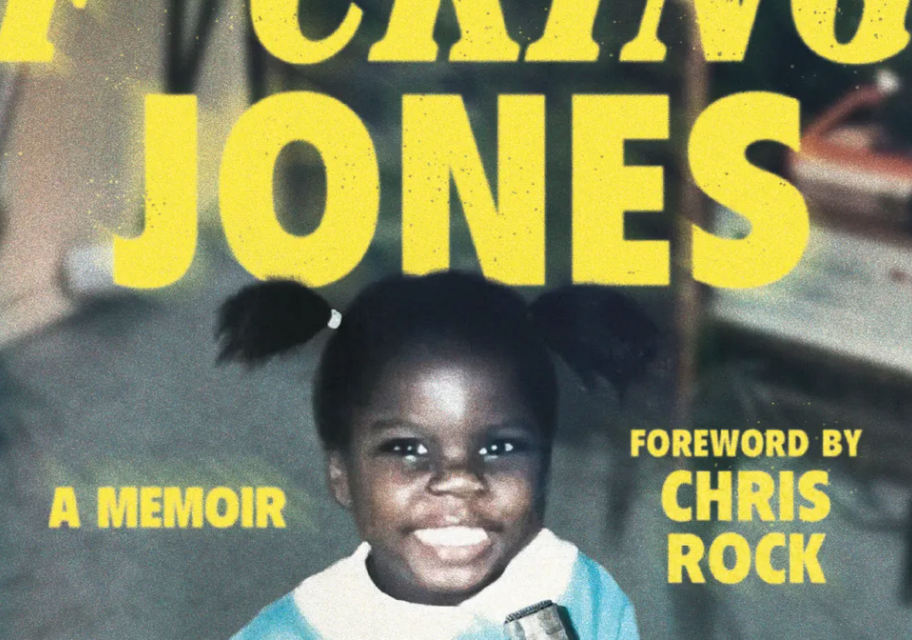Actress-comedian, and now author, Leslie Jones is baring all in Leslie F*cking Jones: A Memoir (Sept. 2023). In a candid interview with Kim Masters and Eric Deggans, NPR TV critic and co-host on The Business – Jones shares stories from her debut book.
Growing up in Fort Bragg, N.C., (now Fort Liberty) – one of the largest military bases in the world – Jones and her late brother Rodney were military brats. As such, she first noticed that they were treated differently at school.
“When we were playing games and running around with each other, it wasn’t even about color, as much as, when we went to school, we were military kids… and there were regular kids,” she recollects. “So it was more of that.”
Jones learned about racism, she says, from her parents.
“We just thought, ‘Our parents. Yeah, that’s our parents s**t.’ We just thought of it as grown up stuff,” she says, until her parents sat her down for “the talk.”
“[It] is like a curtain being snatched down because then I noticed that the little apartment that we lived in… the section we lived in, the black people was on one side, and the white people was on another side,” she recalls. “I never even noticed that… [then] all that stuff starts waking up in your head.”

Book cover from Leslie Jones’ “Leslie F*cking Jones: A Memoir.” Courtesy of Hachette Books Group
Jones’ family eventually moved to Los Angeles, where her father took a job as an electronics engineer at Stevie Wonder’s radio station, KJLH in Compton, CA, and she attended high school in Lynwood.
After graduating, she received a basketball scholarship to play at Chapman University, but ended up following her head coach to Colorado State University. At CSU, a friend signed her up for a “Funniest Person on Campus” contest, which she won. In 1987, Jones moved back to Los Angeles and started performing at comedy clubs, while maintaining day jobs to make ends meet.
During her stand-up career, however, she faced many challenges. One of them was hearing from established colleagues that she would never make it into showbiz.
“There’s a list of comics that have told me, ‘You will never be famous…because you don’t know how to be you on stage,’” she recalls.
Jones characterizes those comments as “funny” and not worth taking at face value.
“It’s like one of those general comments that you go, ‘Go f** yourself,’” she says. “You took your time out to come over here and tell me I wouldn’t do s** or tell me that I couldn’t do something? But if I really was that person, you wouldn’t spend time on telling me that because I wouldn’t be a bother to you, right? You only tell stuff to people who you’re threatened by.”
The criticisms didn’t discourage her. In 2012, actor-comedian Chris Rock – who wrote the foreword of her book – saw one of Jones’ performances at the Comedy Store and gave her names of several managers. After that, he got her an audition with the iconic NBC variety comedy-sketch television show Saturday Night Live, which was holding a casting call to add a Black woman to the show.
In 2013, Kenan Thompson – SNL’s longest-tenured cast member – refused to dress in drag, and demanded it to hire Black women instead. Then, he said it was hard to recruit for the gig, which was highly controversial. Jones now clarifies it:
“He didn’t say that Black women wasn’t right. He said that they can’t find the Black women who are actually ready to do SNL. It’s not the same thing.”
For years, SNL had been criticized for its lack of diversity and representation among its hosts. And, in its 40+ years only four other Black women had joined as cast members, including Yvonne Hudson, Danitra Vance, Ellen Cleghorne and Maya Rudolph.
“Saturday Night Live’s Weekend Update. Leslie Jones plays tennis player Serena Williams. Courtesy of SNL on YouTube
Jones auditioned for a spot in 2014, and came on board as a writer rather than a performer.
“I brought in this little breath of fresh air,” she says. “It’s just a mechanism of how much people can take, is really not knowing what to do with a person like me.”
Jones later told radio show host Howard Stern that she didn’t want the audition and after she was offered a job as one of the show’s writers, she almost turned it down.
Soon after, Jones was promoted, becoming one of the most memorable SNL performers.
“You have to know yourself because if you don’t know yourself getting into this business, they will make you what they want to make you,” she observes. “My attitude, my position, my face, my whole self doesn’t play against myself.”
She also broke several milestones. At 47, she became the oldest person to join SNL, and for the first time in the show’s history, the cast included more than one Black woman – Sasheer Zamata joined the series alongside Jones.
“You’re helping them develop into what they could be in this business. But I already know what I am,” she adds. “You got the opportunity to work with me, because I am a freelance artist that came here and lent you my talents for a certain amount of time. It’s now time for me to take my tractor back.”
“Saturday Night Live” skit, “Get Woke with Tamika.” Courtesy of SNL on YouTube
In her memoir, however, Jones writes that she felt SNL sometimes boxed her in stereotypical sketches. But she learned to trust her instincts and used that opportunity to “build her resume.”
“In this world, you need to show them that you’re a team player,” she notes. “You want to be able to leave a place like SNL and still be able to go work in other places. SNL, that’s your start thing, [it] is not going to be my life thing. SNL is now a catapult, and [it] is giving me a wider portfolio because now the skills that I’m learning here [are] skills I’m going to use outside of SNL.”
Jones performed on SNL until 2019 and earned three Emmy nominations along the way.
After she left the long-running TV series, she landed other TV roles, was featured in films like The Angry Birds Movie 2, Coming 2 America, and had her own comedy-special on Netflix.
“Leslie Jones Has 50 More Years Of Fun Ahead” clip, “Netflix is a Joke.” Courtesy of Netflix via YouTube
One of the most important relationships Jones developed during her SNL years was with its creator Lorne Michaels. She says that maybe because she was older and wiser, she wasn’t intimidated by him.
“I would go and sit right by Lorne just to piss him off, and Lorne loved that because people did treat him like they were scared of him,” she recalls.
“I asked him one time, ‘You know, everybody’s scared of you, right? Do you want people to fear you or love you?’ And he said, ‘I like the fear that turns into love.’ I said, ‘That’s the most gangster s**t that I’ve ever heard in my f*ing life.’”
Her memoir, Leslie F*ing Jones is available everywhere.






